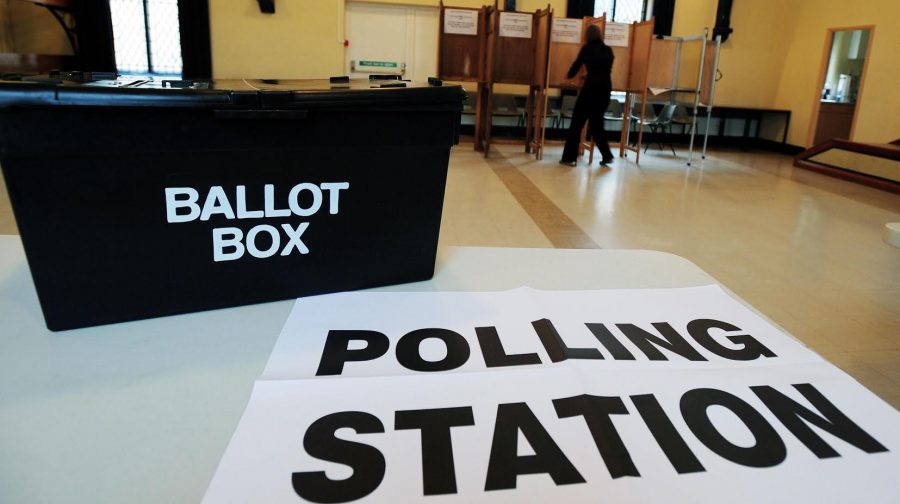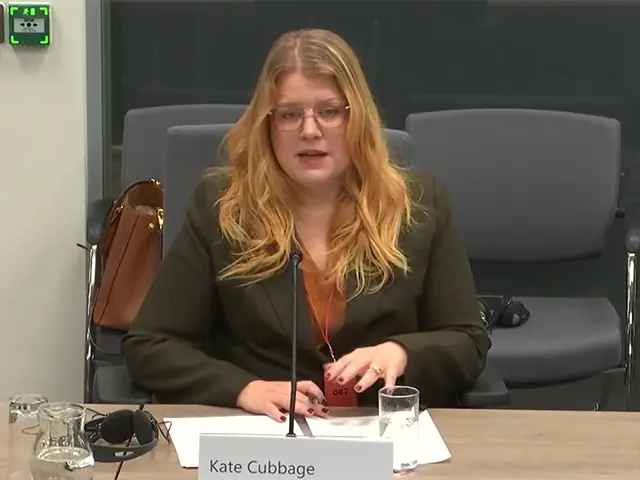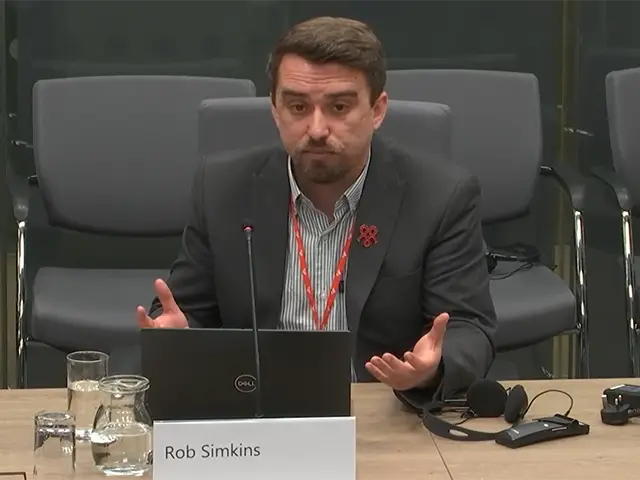Politics
Snap election builds in unfairness

A SNAP General Election is unlikely to break the break deadlock, the Electoral Reform Society has warned
The ERS says results are likely to be ‘clear as mud’ when it comes to translating voters’ preferences, with ‘vote-splitting, wasted votes and unfair results on an industrial scale’.
One in four (24%) voters are planning on voting ‘tactically’ – rather than for their first choice – increasing the likelihood of random results under Westminster’s winner-takes-all voting system, according to BMG polling for the Society.
When the same question was asked before the 2017 general election, 20% of people said they’d opt for someone who was not their first choice.
Westminster’s voting system rests on a handful of marginals changing hands: “Eleven seats were won by less than 100 votes in 2017. North East Fife was held by the SNP by just two votes. Such are the vagaries of the system that the Conservatives could have won an absolute majority based on just 533 extra votes in the nine most marginal constituencies.
“A working majority could have been achieved on just 75 additional votes in the right places. Two very different outcomes based on less than 0.0017 per cent of voters choosing differently,” the Society’s 2017 election report noted.
Darren Hughes, Chief Executive of the Electoral Reform Society, said: “Few believe a third General Election in the space of four years will ‘fix’ the current impasse: the only agreement seems to be that there is yet more volatility coming our way, with parties hoping to gain from the chaos.
“It’s amusing to remember that Westminster’s voting system is supposed to deliver ‘strong and stable’ government. It has totally failed to do what it says on the tin, and no wonder – people are rightly shopping around, but this two-party system is totally unable to cope.
“This election is likely to see ‘tactical’ voting on a scale never seen before, alongside widespread ‘vote-splitting’ and candidates getting in on fractions of the vote.
“First Past the Post voting is now an engine of volatility, which could make the current problems even worse. We could see a ‘wrong winner’ election – where the biggest party did not win the most votes – another hung parliament, and wasted votes in the millions. It’s time to join other advanced democracies in backing a fair voting system where seats match votes.
“This must be the last election conducted using Westminster’s scandalously unfair electoral system. It’s time for Westminster catch up with the rest of the world, with proportional representation and an end to the disaster of winner-takes-all voting.
“Whatever the case, this election will be a ‘hold your nose’ ballot, with one in four feeling forced to vote tactically for their second or third choice.
“A snap election guarantees nothing but an unfair lottery for voters. Let’s build a democracy fit for the 21st century, with an electoral system that encourages cooperation, not gridlock.”
ERS analysis of the 2017 election found that millions of people’s votes were thrown on the electoral scrapheap. 68% of votes had no impact on the result – representing 22 million votes going to waste.
Professor Sir John Curtice told LBC today that this election is likely to see a very high number of votes for parties other than the traditional ‘big two’.
In June, he told the ERS: “There is little doubt that Britain’s traditional two-party system is facing its biggest challenge yet in the wake of the Brexit impasse. If that challenge persists it would seem inevitable that there will renewed debate about the merits of the first-past-the-post electoral system.”
The latest YouGov poll puts Labour and the Conservatives on joint support of 59% – far below their 82% reached in 2017.
The ERS is calling for a proportional voting system for Westminster, the Single Transferable Vote system used for Scotland’s local elections and elections in Ireland.
The warped nature of the system is reflected by the fact that in 2017 it took 43,000 votes to elect a Conservative MP, 49,000 for Labour, nearly 200,000 per Lib Dem and over 500,000 votes for the Greens’ single MP. It took just 28,000 votes per SNP MP and 29,000 per DUP MP. The SNP, Greens, Plaid Cymru and Liberal Democrats support PR.
Community
Cilgerran school could be discontinued as consultation launched

A CONSULTATION on proposed changes for a north Pembrokeshire school, which attracted a near-400-strong petition in opposition to the council, has been launched.
At its May meeting, Pembrokeshire County Council considered a report of the School Modernisation Working Group which outlined the findings of a review of education provision in the Preseli area.
“In particular, the review considered the extent of surplus school places in the area, set against a significant decline in the pupil population,” the council in its consultation on proposals for discontinuation of Cilgerran Church in Wales Voluntary Controlled School has said.
A later July meeting of the council, following May’s agreed consultation with St David’s Diocese, backed a general consultation to discontinue Cilgerran Church in Wales Voluntary Controlled School, and to establish it as a 3-11 community school.
The consultation was launched on December 16 and runs to January 30.
Hundreds have opposed the proposed changes, with a petition, on the council’s own website opposing the changes recently closed after gaining 391 signatures.
Any petition of between 100 and 499 signatures triggers a debate at one of the council’s Overview and Scrutiny Committees, and any over 500 a debate at full council, meaning this petition will be heard by committee members at a later date.
The proposals for Cilgerran are part of a wide range of potential education changes in the county.
Two petitions, opposing the potential closures of Manorbier and Ysgol Clydau schools, were recently heard at full council and a further petition opposing the potential closure of Stepaside School has recently been launched.
The Cilgerran e-petition, created by Louise Williams, raised concerns including the school could become part of a federation, a loss of permanent head teacher on site, a shared head teacher would have to oversee several schools, loss of funding control and the ability to maintain the school’s current healthy and stable funding, and a loss of commitment to the church, in turn could impact on the school’s and pupils values, beliefs and cultural beliefs.
It said: “Ysgol Cilgerran VC school has strong links with the Church community in Cilgerran and we believe this will have a negative impact on the children who attend the school, the community of Cilgerran and the links between the two.
“We are proud of our school ethos and values which are strengthened by our links with the church. The school has close and strong relationships with our Church in Wales federation governors one of which is also our safeguarding governor.
“Our Church Federation governors work closely with the school and are regular visitors to the school and the children. They provide vital support and guidance to the school and have a positive impact on the Children’s education. We believe these links will be weakened by this proposal to remove our VC status and we believe this is an un-necessary action.”
Community
‘Harrowing’ distress now the norm for unpaid carers in Wales

“HARROWING” levels of distress have become the norm for unpaid carers in Wales, a committee has heard, with charities warning of a support system “set up to fail”.
Kate Cubbage, director of Carers Trust Wales, told the Senedd’s health scrutiny committee: “There are too many carers who are reaching crisis point without any support.”
Ms Cubbage explained that most councils are supporting fewer than 500 carers, warning: “There are really, really high levels of unmet need within our communities.”
She told Senedd Members that staff are receiving trauma training to support their mental health due to the levels of distress they are seeing among carers.
Ms Cubbage pointed to a University of Birmingham study which found an increased suicide risk among unpaid carers akin to that of veterans who have seen active service.
“One in eight carers has made a plan to end their own life,” she said, calling for carers to be specifically considered in the Welsh Government’s suicide prevention strategy.
“One in ten has made an attempt… at a time when the average local authority has support plans for less than 0.5% of the caring population.”
Warning of deepening poverty in Wales, the witness expressed concerns about a 31% poverty rate among carers – “far higher” than the 22% in the wider population.
Ms Cubbage added that young carers miss more than six full school weeks each year, compared with pupils without caring responsibilities who miss nearer two weeks.

She told the health committee: “It’s no wonder young carers are achieving less at school. They are less likely to go on into further and higher education.
“And if they do make it to university, they’re less likely than their peers to actually graduate.”
Reflecting on a personal note, Ms Cubbage, a parent carer, said her autistic son has accessed services from ophthalmology to audiology over the past 16 years.
“I have never once been signposted to anything that would suggest that I am an unpaid carer or that I can access support… That kind of lived experience is really important.”
Rob Simkins, head of policy at Carers Wales, added: “Things are getting worse: anecdotally, we see that through our services but also that’s what the research tells us.”

He pointed to a Carers Wales survey which has shown a “shocking” 53% increase in the number of carers cutting back on food and heating.
Giving evidence on Wednesday December 17, Mr Simkins warned of a 39% increase in the number of carers reporting “bad” or “very bad” mental health since 2023.
“All the evidence that we’re collecting shows that this is going in one direction,” he told the committee, adding: “And that’s the wrong direction. It’s a bleak context.”
Mr Simkins said census data shows about 310,000 unpaid carers in Wales but research indicates the number could be nearer 500,000 – roughly 15% of the population.
He cautioned that charities across the country, including Carers Wales, are seeing real-terms cuts in funding from the Welsh Government every single year.
Mr Simkins warned of a “shocking” lack of data and a system “set up to fail” more than a decade on from the then-Assembly passing the Social Services and Wellbeing (Wales) Act.
Warning some councils cannot quantify how many carers’ assessments they could carry out over 12 months, he asked: “How on earth are you meant to collect data from unpaid carers and plan services if you can’t even figure out how many you can assess?”
Asked about carers’ assessments, he highlighted a lack of capacity within councils as he warned a “pitifully low number of carers go on to get any support at all”.
Greg Thomas, chief executive of Neath Port Talbot Carers Centre, told Senedd Members the voluntary sector is being increasingly asked to plug gaps without necessary funding.
He warned the jam is having to be spread “ever-more thinly”, creating a tension between reaching as many people as possible and not wanting to compromise quality of support.
“We’re not quite saying ‘no’ to people,” he said. “But we’re having to say a qualified ‘yes’ about what we’re able to offer… We’re massively overstretched, massively oversubscribed.”
Mr Thomas told the committee the carers’ centre has the required reach and expertise, concluding: “It’s almost give us the tools and we can do the job.”
If you have been affected by anything in this story, the Samaritans can be contacted for free, 24/7, on 116 123, or by email at [email protected].
Community
Pembrokeshire council tax rates could go up in 2026

THERE’S just a few days left to have your say on Pembrokeshire’s budget setting for the next financial year, which includes the potential for huge increases in council tax.
Pembrokeshire’s financial situation for next year is some £4m better off after a higher settlement from the Welsh Government, but the council still faces difficult decisions.
While council tax makes up a proportion of the council’s annual revenue, a crucial area of funding is the Aggregate External Finance (AEF) rate from Welsh Government.
Pembrokeshire was to receive a 2.3 per cent increase on its settlement, a total of £244,318,000, amounting to an extra £5,493,000, placing it at joint 13th of the 22 local authorities in Wales.
Now, following a Welsh Government and Plaid Cymru agreement, local authorities including Pembrokeshire have received a better financial settlement.
Speaking at the December meeting of Pembrokeshire County Council, while presenting a report on the outline draft medium term financial plan (MTFP) 2026-27 to 2028-29, Cabinet member for finance Cllr Alistair Cameron said the recent rise in the financial settlement from the Welsh Government had decreased the expected funding gap for the next financial year for the county from £17.7m to £13.6m, but stressed: “There are still increased pressures we are going to have to face.”
The closing date for completed responses to the public consultation is January 4.
The council, in its online consultation, says there are limited ways that the funding gap can be met:
- Increase the rate of council tax charged (each one per cent increase generates approximately £907,000 of additional income).
- Change the way services are provided and delivered – (efficiency gains, reduce what council does etc).
- Increase the amount charged for some services
Cllr Alistair Cameron, Cabinet Member for Corporate Finance and Efficiencies, has said: “It is vitally important that we get the views of as many members of the public as possible to help shape our future proposals with your priorities at the forefront.
“Everyone will be aware that it is increasingly difficult to balance the growing demands on the council but we are determined to put together a budget that enables us to continue to provide essential services for the people of Pembrokeshire.”
The actual setting of the budget and related council tax level along with any potential savings and cuts, will be decided at a later date, with committee scrutiny ahead of Cabinet considering a revised draft budget on February 9, before it is recommended to full council on February 20.
-

 Crime3 days ago
Crime3 days agoMilford Haven man jailed after drunken attack on partner and police officers
-

 News6 days ago
News6 days agoDyfed-Powys Police launch major investigation after triple fatal crash
-

 Crime3 days ago
Crime3 days agoTeenager charged following rape allegation at Saundersfoot nightclub
-

 Crime4 days ago
Crime4 days agoMan charged with months of coercive control and assaults
-

 Crime4 days ago
Crime4 days agoMan sent to Crown Court over historic indecent assault allegations
-

 Crime6 days ago
Crime6 days agoMan spared jail after baseball bat incident in Milford Haven
-

 Crime4 days ago
Crime4 days agoMilford Haven man admits multiple offences after A477 incident
-

 Crime4 days ago
Crime4 days agoWoman ‘terrified in own home’ after ex breaches court order



















